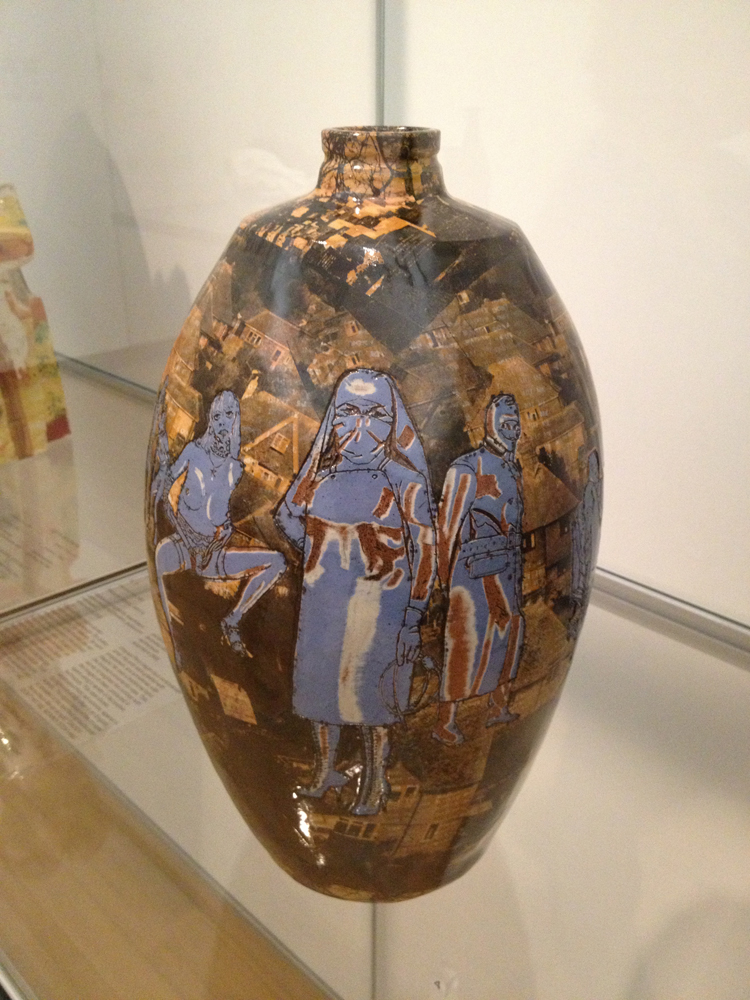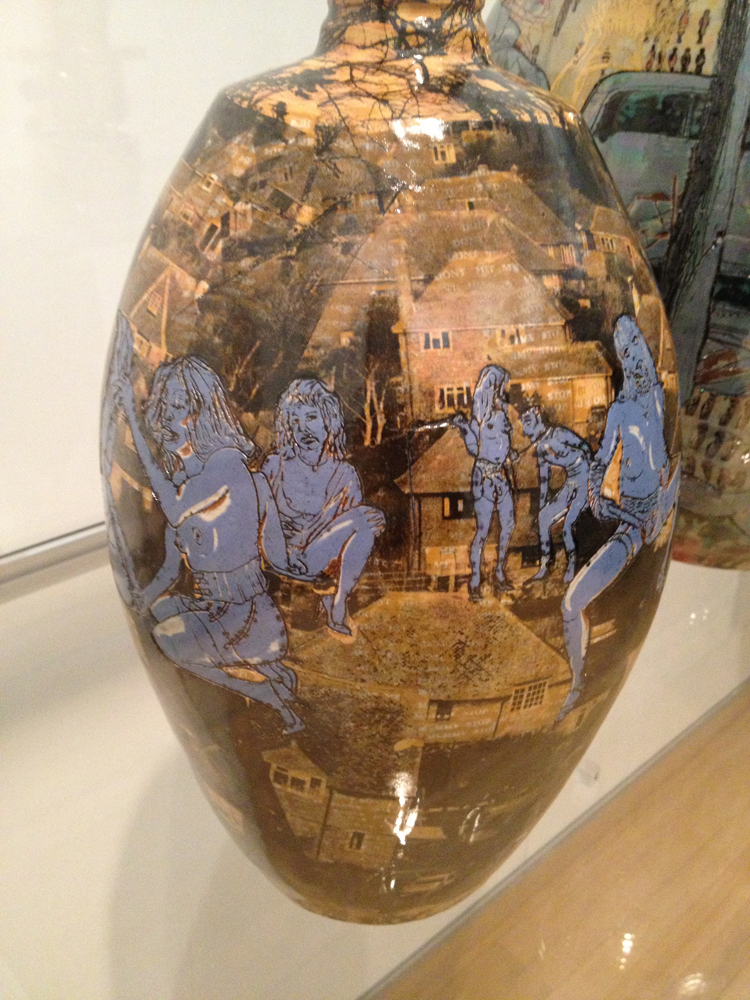I had walked around the design exhibition of the New Stedelijk for about an hour, when, after rows and rows of Swedish cutleries, german engineering and dutch design homes, my eyes fell on a piece of pottery by an English artist. His name was Grayson Perry and the work was Strangely Familiar, a ceramic vase acquired by the museum in 2000, contrasting quite a bit from the otherwise dutiful and rather dull exhibition. The vase show blue human figures engaged in sadomasochistic sex over a background of British suburbia. A sentence is written upon it: ‘DADDY DON’T HIT ME, MUMMY STOP HIM...’
A few years back I studied archeology at the university of Stockholm, and for me the most inspiring part of the studies was antique art. The evolution of art in the early centuries of history, in Sumeria, Egypt and Greece is a favorite subject of mine. When I see the pottery of this contemporary artist I recall the faces of Achilles and Ajax, playing a game of dice on the black-figure pottery of 6th century BC Greek painter and potter Exekias I saw at the Vatican Museums in Vatican City. Grayson Perry pays heed to this tradition and the images on Strangely Familiar remind me of the bacchanals, and is not far from the courting of young boys, often shown in both black- and red figure pottery painting. His splashing text, as recited above, also goes back to the way Greek painters wrote text on their pottery.
Perry discovered early on that he was of a masochistic nature and at the same time a transvestite, which reflects in a lot of his work. His earlier works where in film, but as the medium failed him he found it more interesting and effective to use ceramics, tapestry, metal-works and other applied art forms. Here the beauty and usefulness of the work hid the underlying layer, which sometimes would be sexual or violent, but always and more importantly a vehicle for criticism; comments on social injustices and hypocrisies. Here I find the explanation of why we find Grayson Perry, the artist, in the design exhibit of the Stedelijk. He is surely an artist, and a well-read one at that, but his works are in the field of applied arts. They are essentially meant to be used and useful, in the same way Greek artist made vases that were commissioned by the wealthy families.
Although this is an interesting distinction, that in fact places Strangely Familiar directly in my path, I don’t think that Perry’s vases will ever be used as such. I believe they are works of art in their own right, and the reason we find them alongside teapots, telephones, Bauhaus and De Stijl is a question of definition, and Perry’s choice to work in traditionally applied art forms.
At the same time it is argued that art and design has moved closer to each other in later years, and that they in some cases are indistinguishable. An artist can easily work as a designer, while a designer successfully creates or uses art in his projects. That this is a later development I realized in the halls of the design exhibit, where the visitor moves through rooms chronologically and thematically ordered to show works of great design. As the rooms become more contemporary, I feel there is a certain shift, from usefulness and immediately perceived function towards less obvious designs, that are more autonomous. It is in this last room I find Strangely Familiar.
I am drawn to it, at first by the likeness to a dear subject of mine, the Greek vases, but then I am intrigued by the subject matter of the vase itself. At this moment I haven’t heard of this artist, but the work speaks volumes about him. When I later read about him in the library, I learn of his life as a cross-dresser, artist and art historian. He has practically become a hold house-name in England, and apart from his own work, he writes books about art and curates shows for museums. In 2002, the Stedelijk held a solo exhibition for him, which in turn made him a Turner Prize-winner the year after. He accepted the prize while in his cross dressing-persona Claire.
Further reading and video:
"The Thomb of the Unknown Craftsman"; Grayson Perry in the British Museum until 26 February 2012
http://www.channel4.com/programmes/in-the-best-possible-taste-grayson-perry/4od
http://www.youtube.com/watch?v=YefKf8To9Po

